#john tiven
Text

The Ramones at CBGB. Credit ramonesmuseum
#pinball#pinball machine#pinball wizard#arcade#retro#barcade#pinball art#1970s#bally#flippers#the ramones#david johanson#john tiven#andy paley#david johansen#photography#cbgb#live at cbgb#cbgb omfug
20 notes
·
View notes
Text


Former Procol Harum Lyricist Keith Reid Dead at 76
Keith Reid, the former Procol Harum lyricist responsible for “A Whiter Shade of Pale” and most of the band’s other non-instrumental songs, has died.
Reid was 76 when he died March 23 of cancer, Best Classic Bands reported, citing an email sent to Reid’s friends.
One of those friends, comedian Richard Lewis, called Reid “the humble genius” in a tweet.
“I worshipped your imagination and loved you,” Lewis said.
Though he didn’t perform with the group, Reid was a full member of Procol Harum, writing mostly with Gary Brooker, who died in 2022, but also with Robin Trower. Besides “A Whiter Shade of Pale,” those songs include “Conquistador,” “Simple Sister,” “A Salty Dog,” “Shine on Brightly” and “The Devil Come from Kansas,” which Yusuf/Cat Stevens recorded in 2014.
He often appeared in promotional photos and was credited alongside the musicians on every album, except for 2017’s Novum, the only Procol Harum album not to feature Reid’s lyrics.
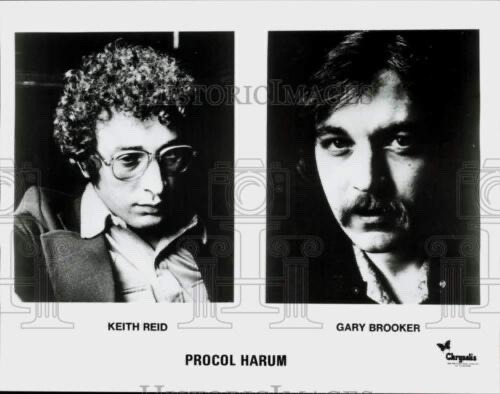
Outside of Procol, Reid wrote for other artists including John Farnham, whose version of “You’re the Voice” became Australia’s all-time, best-selling song. He also co-wrote the Jeff Healey Band’s “River of No Return” with Jon Tiven.
“When it came to writing words for songs, (Reid) was one-of-a-kind brilliance,” Tiven said on social media. “When it came to being a friend, I couldn't ask for a better one. When it came to collaborating, he brought me a lyric that turned into one of my biggest (if not my biggest) songs. Shine on brightly, genius.”
Reid released his second solo album, In My Head, in 2018.
“Bon voyage, dear friend,” John Waite wrote on Facebook.
3/29/23
#procol harum#keith reid#gary brooker#robin trower#jon tiven#jeff healey#john waite#the babys#john farnham#richard lewis#yusuf/cat stevens#best classic bands
14 notes
·
View notes
Text
Putting the Crown on Queen
Jon Tiven, Zoo World, 20 December 1973
ALL OF ENGLAND is abuzz with the news of a hot group with all the majesty of Led Zeppelin, a group that delivers superstar appeal even before they've played a major London venue. The name of the group is Queen, the guitarist's name is Brian May, and I had the distinct pleasure of being able to chat with him in his London apartment on the eve of the first album's release. Brian is a friendly but quiet fellow, proud of his guitars and his music in a very humble way. Yes, like the name of the group itself, Queen's members thrive on ambiguities.
"I'd been with Roger, our drummer, in a group called Smile, a Creamish band. We'd jam all the time, getting our experience in clubs, but we never got anywhere — no matter what we did, we seemed to be fated for obscurity. Our single on American Mercury Records did nothing, we had a horrible manager who took all our money, it seems that everyone's had one of those. Really terrible... we ended up suing Mercury, and the manager got all the money, so we broke up. Roger and I got together with Freddie, our singer, who had lots of ideas for songs, and the whole idea/concept/image/music of Queen was formed at that time. Most of the songs which appear on our first album were written in the first two or three months of Queen's existence, we were all keen and enthusiastic. Freddie and I write separately, but we finish off the songs together, and Roger's written some things for the new LP.
"We had trouble with bass players, just couldn't find the right one. We went through about five, finally meeting John through a friend, and he was right, so we've been knocking about for threeish years.
"We were very cautious because of what had happened before. Having been around so long and gotten nowhere, we played a lot but only seemed to reach a few people. So we acted as if we were going to play to the world from the start, it was somewhat snobbish, actually. We played special things and a few college gigs every fortnight, we always assumed that we were to be a recording band. If we didn't make it that way, we wouldn't make it at all. I knew some people from De Lane Lea Studios from ages back, and they asked us in to help them out, which we did, and they then offered to make us some demos. They were good 16 track demos, we mixed them ourselves and brought them around to record companies. All of them wanted us except EMI.
"But we knew John Anthony from Smile, and he was getting a deal together with Trident. He said he'd try to make a deal with Trident as a production company, and he came through. We did the album with John and Roy Baker producing, and then the finished product went round the record companies again. Eventually, Jack Nelson did the deal with EMI — it's worked out alright, although it's taken a long time."
Such is the tale of Queen's formation, a band born out of time and continuous effort. Unlike many contemporaries, Queen are not the teenage boys who dropped out of second grade to play rock 'n' roll — they've been very cautious all the while. "I got a degree in physics, and I've done about five years' work on an Astronomy PhD. I'm still writing it up, actually — about a word a week. It's a strange situation, as we've all been doing that sort of thing and waiting until it looked as though the time was right to be musicians. I think it's a good idea, because we're still fresh in a way. You can only get so far playing year after year to audiences that don't understand what you're doing, and if you don't work things properly you'll end up playing $15 a night gigs forever."
The question then comes up, is this Queen band a bunch of homosexual rockers a la David Bowie, or has the title to do with something other than the pansy connotation? "I don't know why the New York Dolls comparisons are coming up, but I haven't heard the Dolls at all or seen them, so I shouldn't say. Our stage act is a show, more rock 'n' roll oriented than the album, actually, as at this stage of the game, if you go onstage and people don't know your material you can get boring if you do all your own stuff all of the time. So we do more heavy rock 'n' roll with the Queen delivery to give the people something to get hold of — get on/sock it to 'em/get off. Give 'em a show, but don't make anything but the music your foundation. We do some R&B things, Bo Diddley's 'I'm a Man', Elvis Presley's 'Jailhouse Rock', as well as Little Richard's 'Bama Lama'. Apart from that, we do our heaviest numbers, we regard records and playing live as two separate things.
"We're not afraid to put everything we can on a record, making it a big production. Obviously there's a connection between records and performances, but they don't have to necessarily be the same. It's very regal and dignified onstage, I don't know quite what to think of the name now. There's some ambiguity there, now that the whole glitter rock thing has exploded, and we're caught in the middle. We knew we were going to get reviews calling us glamrock, but when people come to see us onstage they'll find out. We keep numbers fairly short onstage, we're more into playing songs as we did the whole jamming thing in the old band. Jamming is great in a way, cause it gives you great experience in playing with someone and playing what you're thinking all the time, but to watch a band do that you see it as self-indulgence.
"People have told us that we are better suited for American audiences than English audiences, although all of our knowledge of America is second hand. I get the impression that the market is different there, as in England you get classified as either teeny-bopper or "underground." If you're somewhere inbetween, you're treading on dangerous ground... and we are. We're not adverse to writing hit singles, as we consider it an art form, but there's the danger in England of getting classed with The Sweet and Marc Bolan, whereas in America you get accepted for what you are.
"The Sweet are a funny band... I think 'Hellraiser' is an amazing single. It's great and very well produced, extremely tight. I know what it's like trying to get a heavy sound that's exciting out of a simple pop song without making it sound too smooth. It's difficult to do what they do, and to do it as well."
Besides being a fine songwriter and a superb guitarist, Brian has been a longtime fan of English rock 'n' roll. His influences are about as diverse as they come, and he doesn't hesitate about flattering the styles of others.
"For me, my main influences were Hendrix as a guitarist and the Beatles as songwriters and as a single unit. I was a Yardbirds fan way back, Clapton and Beck especially, and I still like their work... we've got the heavy influences, but we're more melodically inclined. And I like a few old guitar players, Freddie King and Chuck Berry. I really enjoyed The Who, and the other Shel Talmy group, the Creation, which was a bunch of art students including Ron Wood from the Faces.
"I do like the Jackson Five, that singer's great whatever his name is, and they've got the sort of rhythm section I go for, nothing can touch it. And they're so young, and we're old, I'm 26. I love the Miracles, and I admire Stevie Wonder and love his production, although I get bored with his songs when they get to repeating the riff over and over. I've gotten sort of sick of him as my neighbors play them all the time. I liked the Velvet Underground, bought all their singles. The Herd were a nice band, I saw them at the Marquee when they were supposedly doing something 'different' but they got caught up in the pop scene, someone was obviously trying to mold them."
Then a wide smile takes over Mr. May's mouth when he talks about one of his all time favorites, the Nice. "We used to go see them at The Marquee every week, and I was very sad when David O'List left. David O'List was very impressive in those days because he was so obviously not following what everybody else was following. He sounds terrible on the albums, and I don't know why, it just doesn't come across like he did it live. It sounds crude and scruffy, and onstage it came across much better. Very often he would sort of flounder around for a few numbers, and then get really settled in and do amazing things. He could always put a note inbetween things, like Emerson's going around all of the time as he's the star of the show, but O'List was throwing in the odd chords and was simply amazing. He was with Roxy Music just before they made the big time — he always seems to leave at the wrong time, I think he's a very highly-strung person who gets fed up with things.
"And Syd Barrett I like as well, he's left his mark all over. The funny thing is how much of Syd is still in the Pink Floyd, a lot of the good things they've got left are derivative of things he used to do. I think they have done quite well, considering. It's a funny borderline between insanity and genius. He used to just stand there and make these funny noises back in the early days, it was just him thrashing at his Telecaster and the other people trying to make themselves heard.
"Actually, we all stopped listening to new records after Hendrix, and it's only recently that we've gotten back to listening. Actually, I'm frightened to hear Mike Oldfield's Tubular Bells because from what I've read, it sounds very much like what I've wanted to do. Very worrying when you have ideas for a long time, like a lot of the things we wanted to do even as far back as with Smile have been done. Smile recorded a few tracks with multitracked guitar before anyone else had."
Queen is currently recording their second album, as well as singles, and they aim to keep the two separate. Brian feels that if you release a single and then put it on an album you're cheating the public, and Queen aims to stay away from that in the future, as there's enough of good material on the album. They're recording the new album in pieces, although the whole concept has been mapped out by the group and producer Roy Baker for some time now. "We're all egomaniacs, so we each want to produce the album ourselves, but at the same time we're cautious as a lot of people try to produce themselves too soon. The new album will be a lot like the last production-wise, with much re-recording and remixing, until we get it perfect. The next album will sound even more orchestral, with more complex guitar arrangements — I think that's the way we're going, doing albums as an artistic production and then doing a stage show of exciting rock. We never use a synthesizer or effects such as Maestro units or Leslie cabinets, all of the sounds are produced by the instruments or the studio itself. We really enjoy blending things, as there are eight guitars on the single, 'Keep Yourself Alive'. We're recording the second album with quadrasonic in mind."
Queen is not only a metallic band of the present, but they're a hard rock band ahead of their time. They should be over in the United States sometime before Winter's end... miss them at your own expense.
Retrieved from rocksbackpages.com
#brian calling michael jackson 'whatever his name is' in 1973 got me YELLING omg#article#interview#1973#brian may#queen band#bri#zoo world
58 notes
·
View notes
Text
Recomendacións para despois dos Oscars 2022
Como seguro que xa sabedes, nestas datas de cinema e polémica, Kinocube está a participar nos faladoiros de Cinema Lobeira arredor dos Oscars, dos premios da Academia de Cinema de Hollywood. Se queredes saber as miñas valoracións persoais, sintonizade as canles d’a Lobeira Today en Youtube, Facebook e Twitch mañá ás 22.00h.
Mentres, propóñovos unha serie de recomendacións de filmes dos Oscars para ir saboreando. Veredes que non sempre coincidirán cos filmes máis laureados durante a noite do domingo, porque a miña intención é poñer o foco nos que non levaron todas as atencións, de entre todos aqueles que tiven a ocasión de ver e que desfrutei amplamente.
The power of the dog (Jane Campion, 2021)
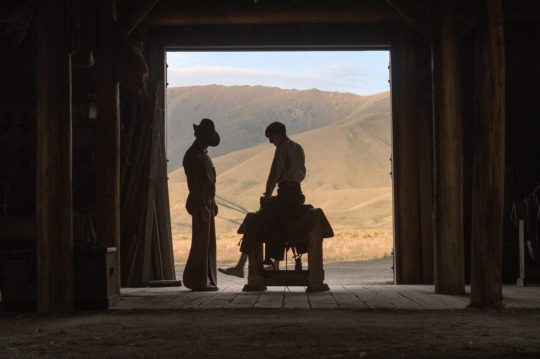
Esta é fácil, recoñézoo. A grande favorita para moitos, volveu á casa cun único Oscar, iso si, deses que fai historia: premio á mellor dirección para Jane Campion, a terceira muller en logralo en 94 anos de historia dos premios. Campion ofreceunos unha obra sutil, sublime, que reflexiona sobre as masculinidades tóxicas e a violencia que exercen sobre as persoas que as padecen.
Belfast (Kenneth Branagh, 2021)
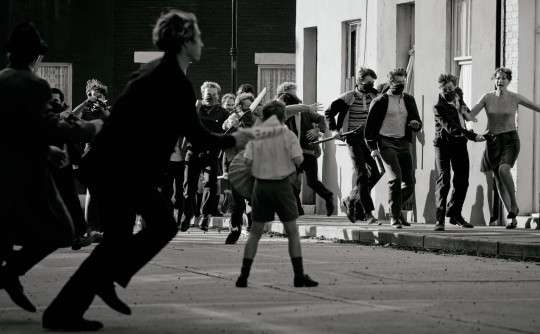
Filme autobiográfico que narra a infancia de Branagh durante os disturbios dos anos 60 en Irlanda do Norte, convertida nunha pequena fábula, vista dende os ollos dun neno, sobre a destrución do fogar, entendido como o paraíso perdido da casa ou do barrio da infancia, e mais sobre a fortaleza dunha familia que terá que enfrontarse á decisión de marchar e deixar a súa terra de orixe ou ficar baixo a ameaza da violencia. En cada plano emerxe a mestría dun John Ford ou un Fred Zinnemann.
Flee (Jonas Poher Rasmussen, 2021)

Nominada en tres categorías principais -mellor documental, mellor filme animado e mellor filme internacional-, esta película volveu coas mans baleiras, xa que se enfrontaba a rivais moi dignos en cada categoría, ademais de lidar cos prexuízos que segue a arrastrar a animación na actualidade. A historia real dun refuxiado a medida que consegue escapar do conflito na súa terra nai, a un tempo que descubre a súa sexualidade, contada a través da fluidez do xénero animado.
The tragedy of Macbeth (Joel Coen, 2021)
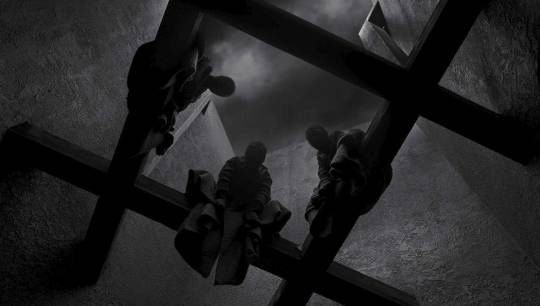
Un dos pequenos filmes máis redondos do ano, polo menos para a que escribe esta bitácora. A fotografía, nominada pero non gañadora, e a iluminación como medio expresivo, as mellores actuacións shakesperianas -atentos á Lady Macbeth de Frances McDormand, inxustamente non-nominada- e en xeral unha nova adaptación que quizabes non aporte nada a outras célebres predecesoras -Kumonosu-jō de Kurosawa e Macbeth de Orson Welles, por exemplo- mais vela resulta unha experiencia enriquecedora.
Quero aproveitar para recomendar tamén algúns filmes que tiveron a sorte de gañar o máximo galardón en anos anteriores. Ben merecidos!
How green was my valley (John Ford, 1941)

Quizabes unha das influencias máis claras para Branagh á hora de formular o guión de Belfast, How green was my valley conta a historia de Huw, o pequeno dunha familia mineira no sur de Gales, a finais do século XIX. Cando xurde o conflito social, neste caso as consecuencias da revolución industrial, entre o capitalismo e a sindicalización, Huw enfrontarase á ameaza da destrución da comunidade e da súa familia.
All about Eve (Joseph L. Mankiewicz, 1950)

En tempada de premios afíanse as gadoupas! Un retrato das loitas de poder entre celebrities, concretamente teatrais, narrado de maneira brillante por un dos mellores cineastas-guionistas da historia, ao que lle encantaban as personaxes arribistas e sen escrúpulos na súa carreira cara a cima. Coidado con Eve!
千と千尋の神隠し(A viaxe de Chihiro, Hayao Miyazaki, 2001)
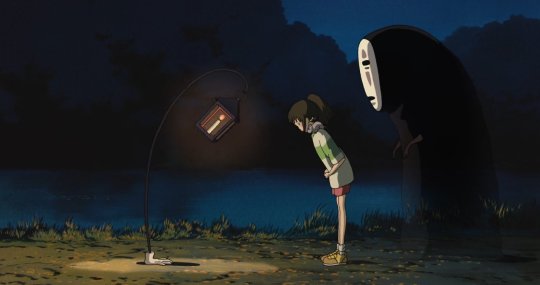
Dun tempo a esta parte parece que é inevitable que Disney ou Pixar leven o premio a mellor longametraxe animada. Porén, pouca xente lembra que esta xoia da animación xaponesa do Estudio Ghibli foi un dos primeiros premiados nesta categoría. Unha obra única no seu xénero que demostra que a animación é un medio expresivo, non un xénero infantil.
The Artist (Michel Hazanavicius, 2011)
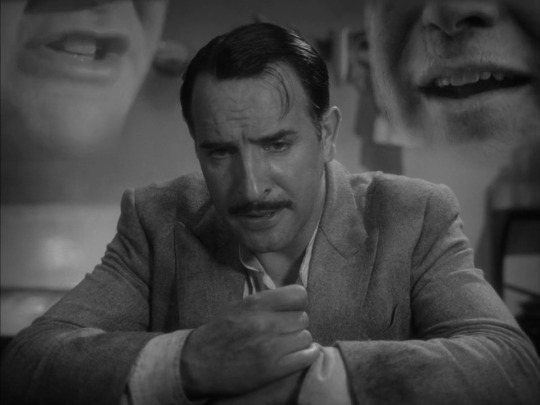
Un interesante xogo arredor do miliario que marcou o paso do cinema silente ao sonoro, un homenaxe en branco e negro ao cinema pioneiro, unha sorte de Singin’ in the rain (Stanley Donen e Gene Kelly, 1952) do noso século. E, sobre todo, un canto de amor á grande ilusión que é o cinema.
Finalmente, un pequeno bonus: un filme de 2021 que non recibiu ningunha nominación, un fracaso na recadación:
The Last Duel (Ridley Scott, 2021)

Para min, un dos mellores filmes do seu director. Coa técnica rashomon, é dicir, filmar varias versión dunha soa historia desde o punto de vista de diferentes personaxes, Scott recrea unha historia real ocorrida na Francia do século XIV. Unha historia de ofensas, privilexios e opresións contada a través das sutís diferencias entre cada perspectiva, cuxo peso narrativo e discursivo cae na muller protagonista, interpretada maxistralmente por Jodie Comer.
Até o vindeiro episodio!
#cinema#oscars#oscars2022#cinema history#classic cinema#cine#galego#galiza#movies#film#recomendacións#film recomendations
0 notes
Text
Take Me Home And Make Me Like It

As the legacy of ill fated Memphis power pop group Big Star seems to grow with each passing year, so does the legend and recorded legacies of its two main architects, Chris Bell and Alex Chilton.
2017 alone will see the release of every known still existing recording from the sessions that begat Big Star’s third & final album in the form of Complete Third, a documentary / live tribute album, a newly revised best of, two collections focused on Chris Bell, a reissue of Chilton’s 1994 solo album A Man Called Destruction and finally...
Take Me Home And Make Me Like It, which is the main focus of our latest dispatch. Freshly released on Euro imprint Munster Records; it’s a collection that offers a sideways view into Chilton’s first steps as a newly reborn solo artist following the implosion of Big Star. The sessions were recorded over the course of a few days in the fall of 1975 with producer and rock scribe Jon Tiven at the helm. If his newly penned liner notes that accompany the LP are to be believed; it was not an easy experience and a cautionary tale of the perils involved when one gets too close to an artist they admire. Chilton appears to have entered the studio in ‘75 ready to apply the lessons he had learned from Third producer, Jim Dickinson, which favored a looser more spontaneous approach to recording. The recordings also make it pretty apparent that Chilton brought to the sessions a pretty strong desire to leave the power pop stylings of Big Star in the rearview mirror. For an example, look no further than Chilton’s almost punk and slightly disturbing deconstruction of his former band’s Christmas carol for agnostics, Jesus Christ, which is documented here in two takes.
The resulting batch of songs have been released in several permutations over the years; first seeing light as an EP entitled Singer Not The Song in 1977 on Ork records, some more popped up on one of the sides of the rare and misleadingly tilted import One Day In New York, and even more were collected and released as Bach’s Bottom in 1993 on Razor and Tie. Intended as an addendum to the previously released collections; part of what makes Take Me Home And Make Me Like It so interesting is that it hews a little closer at times to what one what can imagine was Alex’s more chaotic and less polished vision for these songs. The alternate takes & mixes presented here tend to focus more on the vocals and less on the rhythm section. A particular highlight is Chilton’s one handed piano run through of the albums title track, which seems to channel a little bit more of the dangerous rock ‘n’ roll spirit Chilton was aiming to capture better than some of the previously released versions.
Producer Jon Tiven, was nice enough to submit to a short Q&A with us about his time working in Memphis, and his subsequent work with Prix where he worked with Chris Bell as a producer. For those that missed out; Tiven’s work with Prix was also very recently the subject of new a reissue on HoZac. So, without further ado, let’s dig in.
Can you tell a little about how you ended up in Memphis in 1975 to record Alex?
I HAD MET HIM IN 1972 AND WE BECAME FRIENDLY, I DID ALL I COULD AS A JOURNALIST TO TRY TO BRING BIG STAR TO GREATER AWARENESS AND HE APPRECIATED THAT OF COURSE. BUT I GUESS HE HAD A CURIOSITY ABOUT ME, A SOMEWHAT YOUNGER MAN FILLED WITH PASSION ABOUT MUSIC, AND IT ATTRACTED HIM. AS I BEGAN MY CAREER IN THE MUSIC INDUSTRY, WORKING FOR CHESS RECORDS IN NYC, I THINK HE SAW ME AS A POTENTIAL LIFELINE FOR HIM TO GET OUT OF MEMPHIS, AND HE KEPT IN TOUCH FREQUENTLY AND AT ODD HOURS. 1974 AND 1975 WERE TOUGH YEARS FOR HIM, BIG STAR HAD GROUND TO A HALT AND HE WAS ALIENATING HIS MEMPHIS FRIENDS, SO I WAS NOT ONLY A FRIEND BUT SOMEONE WHO PERHAPS COULD HELP HIM CAREER WISE. MY GIG AT CHESS WAS NOT FULFILLING ME, AND HE SUGGESTED I COME DOWN TO MEMPHIS AND PRODUCE HIM.
What was the intention for the material you were planning on committing to tape?
I WANTED TO GET A RECORD DEAL WITH A LABEL THAT WOULD PUT SOME DOUGH BEHIND HIM.
What was the mood of the sessions?
NIGHT ONE WAS LIKE A DRUG-INDUCED SÉANCE, BAD SPIRITS RISING. AFTER THAT, THINGS GOT MORE “NORMAL,” WHICH DIDN’T PLEASE ALEX BECAUSE HE WANTED MORE CHAOS THAN JOHN FRY WAS WILLING TO PUT UP WITH AND I WASN’T GOING TO GO OVER THAT LINE AFTER THE PISSING-ON-THE-CONTROL-ROOM-WALL INCIDENT.
Were they as chaotic as their reputation?
EVERYTHING I’VE WRITTEN ABOUT IT IS TRUE. BUT THE INSANITY ONLY REIGNED FOR ONE NIGHT.
Is it true Alex was recording over some of the Third session tapes to record the songs you were working on?
ALEX SAID HE’D PROVIDE STUDIO TIME AND TAPE, IT WOULD COST ME NOTHING. WHEN I GOT THERE, NOTHING BECAME A LITTLE EXPENSIVE, BUT I HAD PUT AWAY SOME DOUGH AND I WAS READY TO THROW DOWN. I SUGGESTED WE START A FRESH REEL, BUT HE SAID NO, LET’S USE THIS, IT’S OF NO USE. WHEN RICHARD AND I DID OUR ROUGH MIXES OF THE FIRST NIGHT SESSIONS AND CAME TO THE END OF OUR RECORDINGS, WE REALIZED WE’D BEEN RECORDING OVER OUTTAKES OF “LOVELY DAY” AND “TAKE CARE.”
How great was the struggle between artist and producer for the approach of the sessions?
THERE WAS NO STRUGGLE. JUST ALEX’S DISMAY THAT THE WILDNESS OF THE FIRST NIGHT WAS SHUT DOWN.
These sessions have been released in many different forms over the years. First being as the Singer Not The Song EP and then later in a more expanded form as Bach's Bottom. Now, Munster is releasing Take Me Home And Make Me Like It. How does the latest release of material from these sessions differ from the prior collections of these songs?
TOTALLY, THERE IS NO DUPLICATION. I MADE MIXES OF THE MATERIAL I HAD WITHOUT THE RHYTHM SECTION, SO THERE IS LESS FOCUS ON AN “ARRANGEMENT” PER SE AND MORE ON ALEX. AND I INCLUDED ALL THE TAKES OF THE MATERIAL THAT I HAD NOT RELEASED BEFORE BECAUSE I THOUGHT IT MIGHT BE TOO DISTURBING.
Do you feel that the latest release might capture more of the chaos or one take rawness that Alex might have wanted to bring to the songs you were working on with him?
I DO THINK THAT ALEX WOULD PREFER THIS VERSION.
What was the reception of the initial release of the material as an EP on Ork? Do you think it helped shape or influence stuff that was happening at that time?
THERE WERE SOME NICE REVIEWS, AND I’VE GOTTEN POSITIVE FEEDBACK FROM OTHER MUSICIANS FOR MANY YEARS. AT THE TIME I WOULD HAVE PREFERRED A LABEL THAT WOULD HAVE DONE MORE WITH IT, PAID ME, SPELLED MY NAME RIGHT. AND MAYBE IF CHARLES BALL DIDN’T POISON ALEX AGAINST ME, WE MIGHT HAVE BEEN ABLE TO CONTINUE TO WORK TOGETHER OR AT LEAST HAVE A FRIENDSHIP. FOR CHARLES, BEING THE PERSON CLOSEST TO ALEX WAS PARAMOUNT, AND WHOEVER GOT IN THE WAY WAS A DANGER. HE WAS A CARTOON VERSION OF THE WORST OF THE RECORD INDUSTRY, I NEVER TOOK HIM SERIOUSLY AS A PERSON BECAUSE OF THAT.
I somewhere read that you were part of a very late iteration of the Big Star lineup. Is this true, and if so who was in the band then? If so, were there many gigs played or recorded? Would this have been around the time of your recordings with Prix?
I PLAYED TWO SONGS WITH BIG STAR AT MAX’S WHEN THEY WERE PROMOTING RADIO CITY, CLIVE DAVIS WAS IN THE AUDIENCE ALONG WITH A BUNCH OF JOURNALISTS. BUT IN NO WAY WAS I IN THE BAND, IT WAS JODY, JOHN LIGHTMAN AND ALEX. PRE-PRIX.
Speaking of Prix, Holzac recently released a new compilation of the Prix material, how did it feel to get that group and their music out to a new audience?
WONDERFUL. AT THE TIME, I HAD NO IDEA ANYBODY CARED.
How did your experiences working with Prix compare to working on Alex's solo as sessions?
I ENJOYED THE SESSIONS, TOMMY WAS GREAT IN THE STUDIO AND TO HAVE CHRIS IN THERE WITH US WAS SPECTACULAR. OUTSIDE OF THE STUDIO, TOMMY WAS PRETTY CLUELESS AND WITH A VOICE LIKE THAT HE SHOULD HAVE HAD GREAT OPTIONS. UNFORTUNATELY, HE DECIDED TO PUT HIS FAITH IN SOME OLD MEMPHIS FRIENDS WHO REALLY DIDN’T KNOW THE MUSIC BUSINESS AND THEY STEERED HIM IN A DIRECTION THAT DIDN’T PAY OFF IN A WAY THAT WOULD HAVE FACILITATED A GOOD LIFE DOING MUSICAL THINGS.
Do have any favorites memories about working with Chris Bell? In working with both Bell and Chilton did you get an idea how their two different approaches might have gelled to help form the sound of #1 Record?
JUST LISTENING TO HIM PLAY GUITAR WAS A JOY. YES, ALEX WAS RAW INSPIRATION LOOKING FOR A VEHICLE. CHRIS WAS THAT PLUS HE WAS A SERIOUS CRAFTSMAN WHO LIKED TO WORK HARD AND LABOR OVER EVERY DETAIL. TOGETHER THERE WAS MAGIC.
What is it like to revisit this material after so many years?
WHEN I WAS MIXING THIS RECORD, I WAS JUST DOING IT AS AN EXPERIMENT, TO SEE IF IT WOULD REVEAL NEW BEAUTY, AND INDEED IT HAS. LISTENING TO IT AS A WHOLE YOU GET A BETTER SENSE OF WHAT THE MEMPHIS SESSIONS WERE ABOUT, AND SOME OF THE STRIPPED MIXES ARE AS SOLID AS THE OTHERS.
Has your perception of it changed?
I TRIED TO IGNORE IT AND FORGET ABOUT IT FOR YEARS, WHICH GAVE ME THE ABILITY TO LISTEN TO IT MORE OBJECTIVELY. I DIDN’T THINK IT WAS ONE OF MY BETTER PRODUCTIONS, BUT NOW I HAVE A MORE FAVORABLE VIEW.
Did you take anything away from those days that's informed your approach to this day as a musician or writer?
YES. LOOK BEFORE YOU LEAP, BUT STILL LEAP.
Finally, what are you up to these days?
I’M ABOUT TO PRODUCE A NEW HANDSOME DICK MANITOBA RECORD. I HOPE IT’S GREAT. IT SHOULD BE.
22 notes
·
View notes
Photo

New for RBP subscribers this week
“I don’t know what to think of the name now. There’s some ambiguity there...” — Queen's Brian May to Zoo World’s Jon Tiven (1973)
PLUS pieces on...
• Bobby Darin (1962)
• Marshall Sehorn (1964)
• Stones @ Palladium (1965)
• The Walker Bros. (1966)
• The Who (1967)
• The Beatles track by track (1968)
• The MC5 (1969)
• Elton John (1970)
• Alexis Korner (1971)
• Tower of Power live (1972)
• Tim Buckley's Fool (1974)
• Jackie Wilson (1975)
• John Denver live in NYC (1976)
• The Rubettes (1977)
• O'Jays' So Full Of Love (1978)
• The NWOBHM (1979)
• A Certain Ratio @ ICA (1980)
• Brit Funk (1981)
• The Time/Vanity 6 (1982)
• Eurythmics (1983)
• James Blood Ulmer live (1984)
• Marilyn (1985)
• Holger Hiller (1986)
• Lee Ritenour (1987)
• Alexander O'Neal live (1988)
• Half Pint (1989)
• That Petrol Emotion (1990)
• Gang Starr (1991)
• Diamanda Galás @ Palace (1992)
• Michael Jackson (1993)
• Beck's Mellow Gold (1994)
• Merle Haggard (1995)
• Beautiful South live (1996)
• Tom Jones (1997)
• Busta Rhymes (1998)
• Atari Teenage Riot (1999)
• Hank Thompson (2001)
• Bollywood music (2002)
• Joan Baez's Dark Chords (2003)
• Andrew Lauder (2004)
• My Morning Jacket's Z (2005)
• Jenny Lewis (2006)
• Gym Class Heroes live (2007)
• Eric Clapton (2008)
• Fever Ray (2009)
• Robert Hunter (2010)
• Johnnie Allan's 'Promised Land' (2011)
• Reeves Gabrels (2012)
• Lloyd Price (2013)
• Minneapolis pre-Prince (2014)
• Whiplash (2015)
• Alessia Cara (2016)
• the xx's I See You (2017)
• X (2018)
• Excello Records (2019)
• Subscribe and become an RBP member
0 notes
Photo

Amanda: [gerundive] ‘which must be loved’…
… there may not have been many Latin scholars but there was plenty of love for Amanda St John’s first London headline show at the Green Note. A small but perfectly informed audience sat in rapt silence for the Northern Irish singer’s intimate and confessional hour-and-a-half set.
The compact and bijou (i.e. tiny) room was the perfect place for Amanda to bare her soul with both her songs and her interaction with the room, backed just by Mike Ross on guitar (whose excellent opening set had included a fine Melissa as tribute to Gregg Allman) and Lorenz Okello-Osengor on upright piano.
Amanda’s own songs ranged from slow, southern soul waltzes like If I Should Fall or the powerful gospel-tinged Stop, through modern show tune territory in the Bayer Sager-like Reach and the airy encore of Melodies, to heartfelt ballads like the emotional Ready and the dramatic fado-style Where Is The Man.
Another gospelly southern anthem, Grow, showed off Amanda’s vocal range, from a sultry near-whisper to passion-laden oomph in the chorus and an intense higher register to close, while the upbeat 60s twist of Right Now showed a sassier, playful side. On both of those songs Amanda drew in the audience, to adding their own chorus to Grow and keeping a steady handclap beat throughout Right Now - no mean feat with the forces to hand! And there was more participation in the Cotton Club jazziness of Big Strong Man, with Amanda leading a Cab Calloway call and response.
More overtly bluesy fare was provided in the New Orleans vibe of the (Jon Tiven co-written) Show Me, and the funky Black Hearted Womanesque You Blew It. Two blues scene standards were handled with aplomb and a lightness of touch: I’d Rather Go Blind was taken as more of a breezy stroll than often is the case, while their relaxed, soulful take on Piece Of My Heart was more Irma than Janis, thankfully.
A third cover was the highly impressive Mercy Now, by Mary Gauthier: a mid-paced, country soul number with Amanda on acoustic guitar, Mike adding excellent southern-fried fills and runs, and Lorenz’s steady piano crescendo closing in a simple solo. The highly effective two-man band did a great job throughout, creating just the right atmosphere and adding their own embellishments to Amanda’s vocal, and they were joined to great effect by guest Tom Brundage who brought his usual classy fluid harmonica playing to Big Strong Man.
Amanda has a fine voice: she can do delicate, she can do rafter shaking, and there’s sufficient grit and soul to drive home the obvious emotion behind her songs.
You won’t need to know Latin to love what you hear when Amanda sings.
0 notes
Text
LGBT Community Irked by Transgender Repeal
LOS ANGELES (OnlineColumnist.com), Feb. 23, 2017.--Revoking former President Barack Obama’s guidelines on transgender bathrooms, President Donald Trump showed his federalist leanings, letting states decide whether transgender groups should use the opposite sex bathrooms. Occupying less than one percent of the population, Obama’s May 12, 2016 decision to order the Department of Education to let transgender groups use the opposite sex bathrooms, Trump decided the matter was best left to the states. Obama’s pro-LGBT [Lesbian, Gay, Bisexual, Transgender] views compromised the privacy and safety of heterosexuals, letting men who think they’re women to used women’s bathrooms. Whatever the religious objections, women have a right to keep males out of their bathrooms, regardless of whether or not the men see themselves as women. Obama’s Department of Education threatened to withhold funds from non-complying schools.
High-profile celebrities, like the morphing of 1976 Olympic decathlon gold medallist Bruce Jenner into national pinup Caitlyan Jenner, underscores the public’s ongoing education into the popular gender-identity issues. On the reverse side, pop singers Sonny and Cher Bono watched their daughter Chastity morph into Chaz, another example of a transgender transformation. While not asked directly, it’s not known whether either Cailyn or Chaz prefer to use the men’s or women’s bathroom. Trump’s Feb. 22 decision to revoke Obama’s order drew protests from the LGBT community, seeing the change as backward. Women’s groups welcomed the change, believing it provides women more safety to keep men out of women’s bathrooms. Trump didn’t take a position one-way-or-another, only decided that the transgender bathroom issue should be decided by the states.
Reversing Obama’s order, Trump received the wrath of the LGBT community, protesting in front of the White House. “We all know that Donald Trump is a bully, but his attack on transgender children today is a new low,” said Rachel Tiven, chief executive of Lambda Legal, a LGBT advocacy practice. Revoking Obama’s order wasn’t intended to attack the LGBT community, only refer legal determinations back to the states. Whatever the fraction of transgender children, it’s not enough to place the vast majority of heterosexual girls into a compromised situation when it comes to letting boys in girls’ bathrooms. Transgender advocates don’t show empathy for heterosexual children, only advocating for their own cause. States attorneys general opposing Obama’s order thought the federal government was being to heavy handed imposing progressive morality on conservative communities.
When you consider what really at stake, it’s really about the federal government advocating for a tiny minority group over the vast majority. “Our fight over the bathroom directive has always been about former President Obama’s attempt to bypass Congress and rewrite the laws to fit his political agenda for radical social change,” said Texas Atty. Gen. Ken Paxton. Paxton sees the battle in terms of local community control, less about state’s rights. Suggesting that Congress should pass laws to decide LGBT issues, over and beyond constitutional protections, invalidates states’ rights. Pending in the U.S. Supreme Court is the case of G.G v. Gloucaster County School Board, who denied transgender boy Gavin Grimm, formerly a girl, the right to use the boys’ bathroom. Deciding on Title IX sex protections, the High Court will decide whether they extend to sex identity issues.
New York Atty. Gen. Eric Schneiderman slammed Trump’s decision to reverse Obama’s transgender directive. “President Trump’s decision to rescind anti-discrimination protections for transgender students is yet another example cruel move by an administration committed to divisive policies that roll back the clock on civil rights,” said Schneiderman, injecting his political views into a legitimate question about Title IX guarantees. U.S. Atty. Gen. Jeff Sessions said Obama “did not contain sufficient legal analysis or explain how the interpretation was consistent with the language of Title IX.” Whatever the constitutional issues, Schneiderman took liberty to lash out at the White House. Whether or not the Supreme Court hears G.G v Gloucaster County School Board is anyone’s guess. Trump decided there’s enough confusion over Obama’s ruling to let the states decide the transgender bathroom issue.
Trump promised during the 2016 that he would be a strong advocate for the LGBT community. He’s didn’t say he’d rubber stamp Obama’s orders or work to advance the LGBT agenda. Because the transgender community is such a small fraction of the public school population, Obama’s directive compromised the civil rights of heterosexual children, not comfortable sharing the bathroom with students with gender identity issues. Banning sexual discrimination, Title IX doesn’t take into account the transgender issues, something yet to be decided in the courts. If Grimm wins his case in federal court, perhaps there will be guidance on whether or not Title IX applies to gender issues. Instead of calling Trump names, LGBT activists should show more empathy to heterosexual boys and girls faced with the indignity—and possible threat—of having opposite sex children it their bathrooms.
About the Author
John M. Curtis writes politically neutral commentary analyzing spin in national and global news. He’s editor of OnlineColumnist.com and author of Dodging The Bullet and Operation Charisma.
0 notes